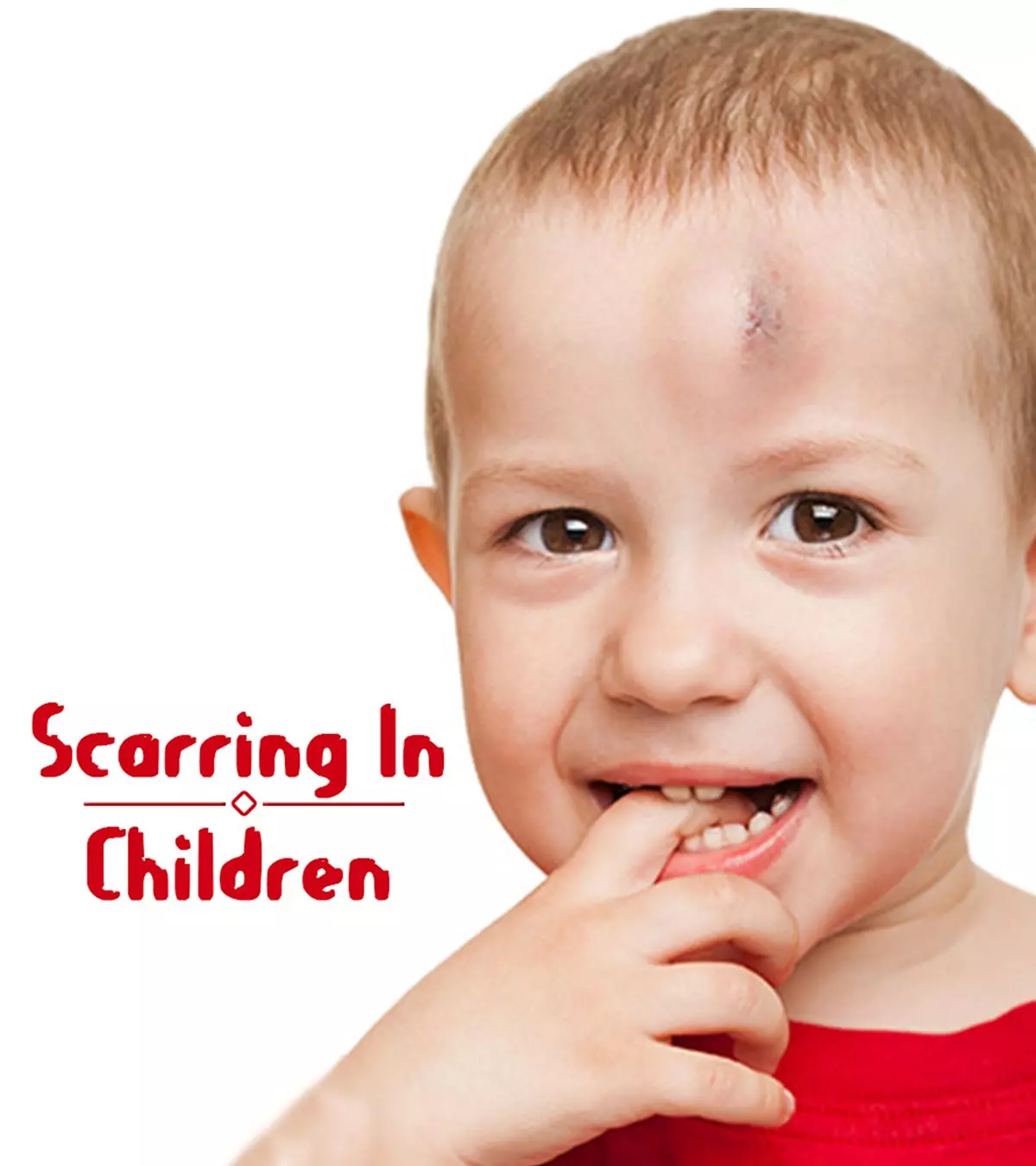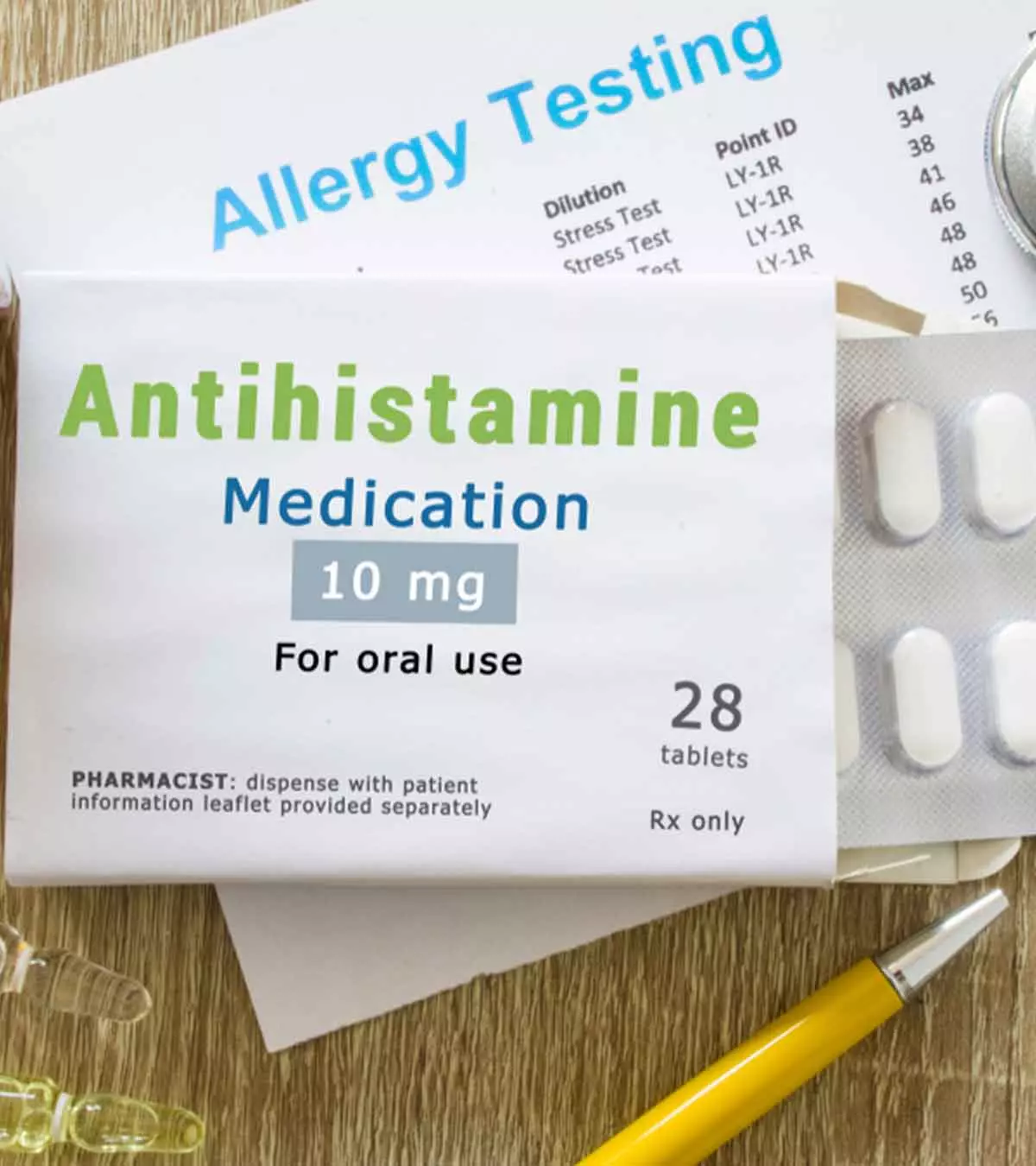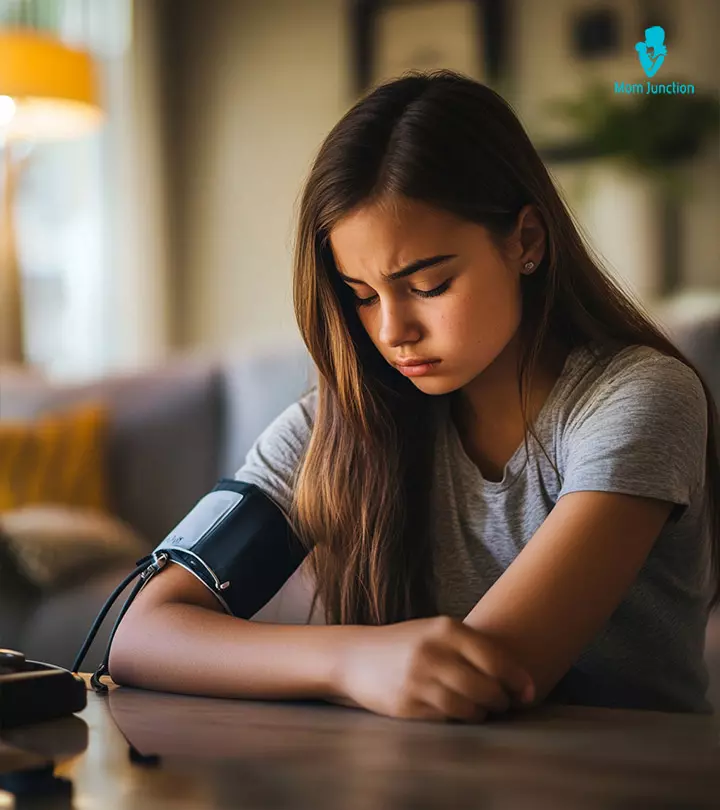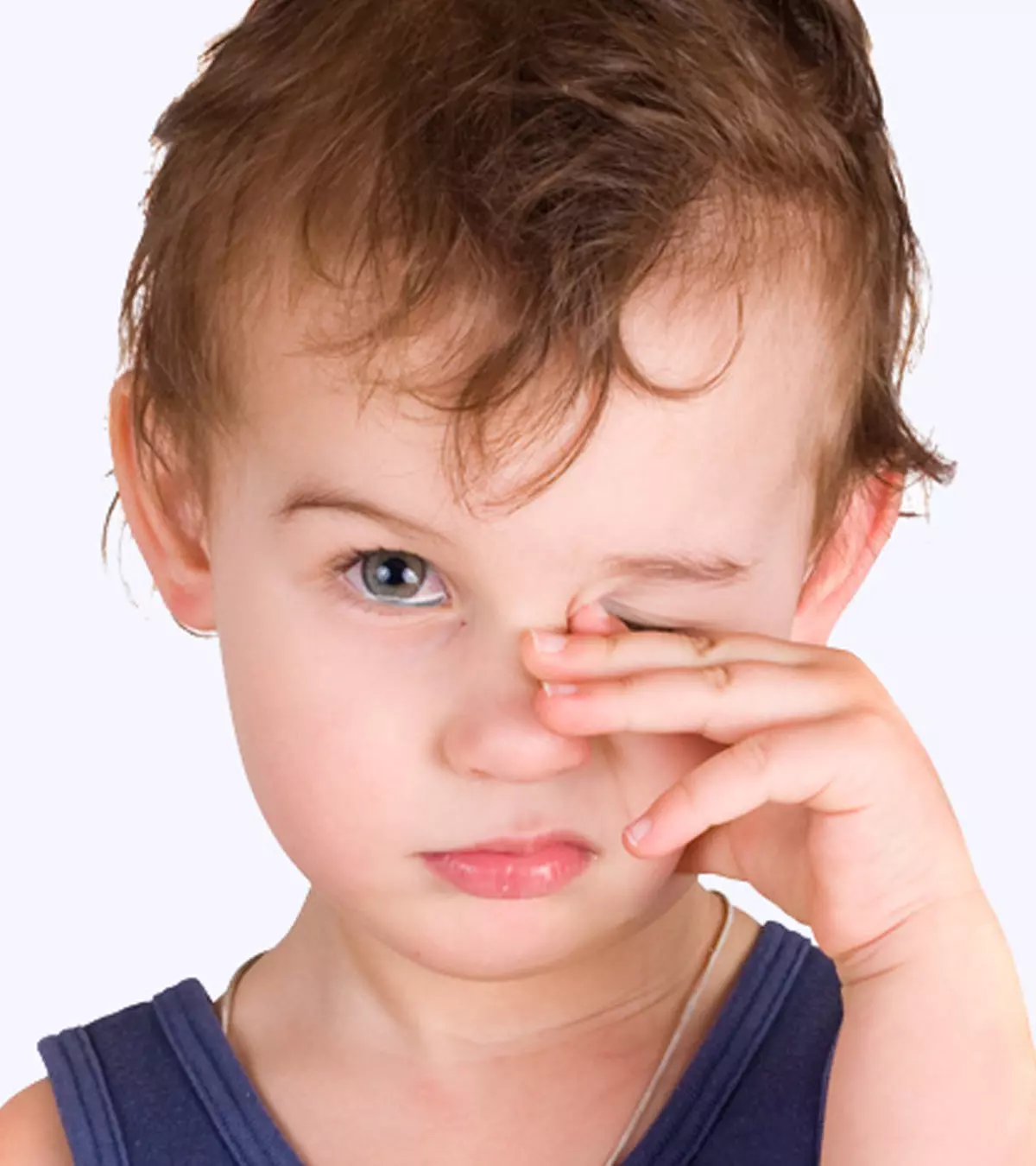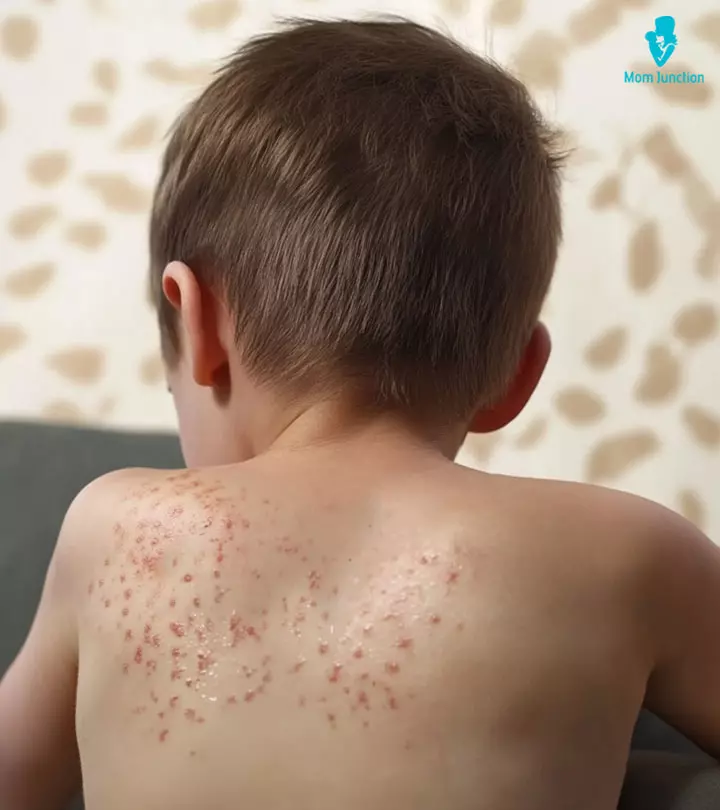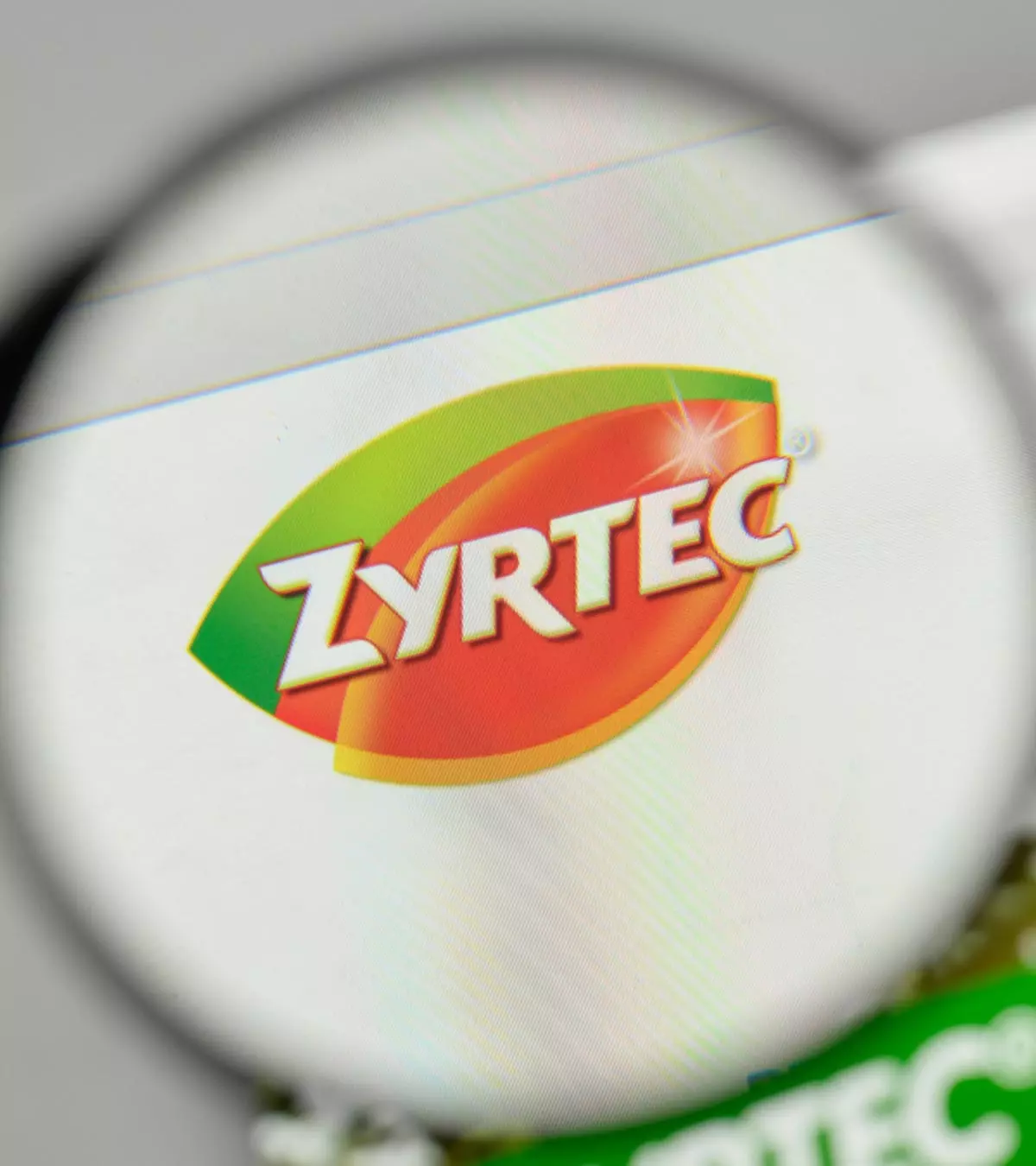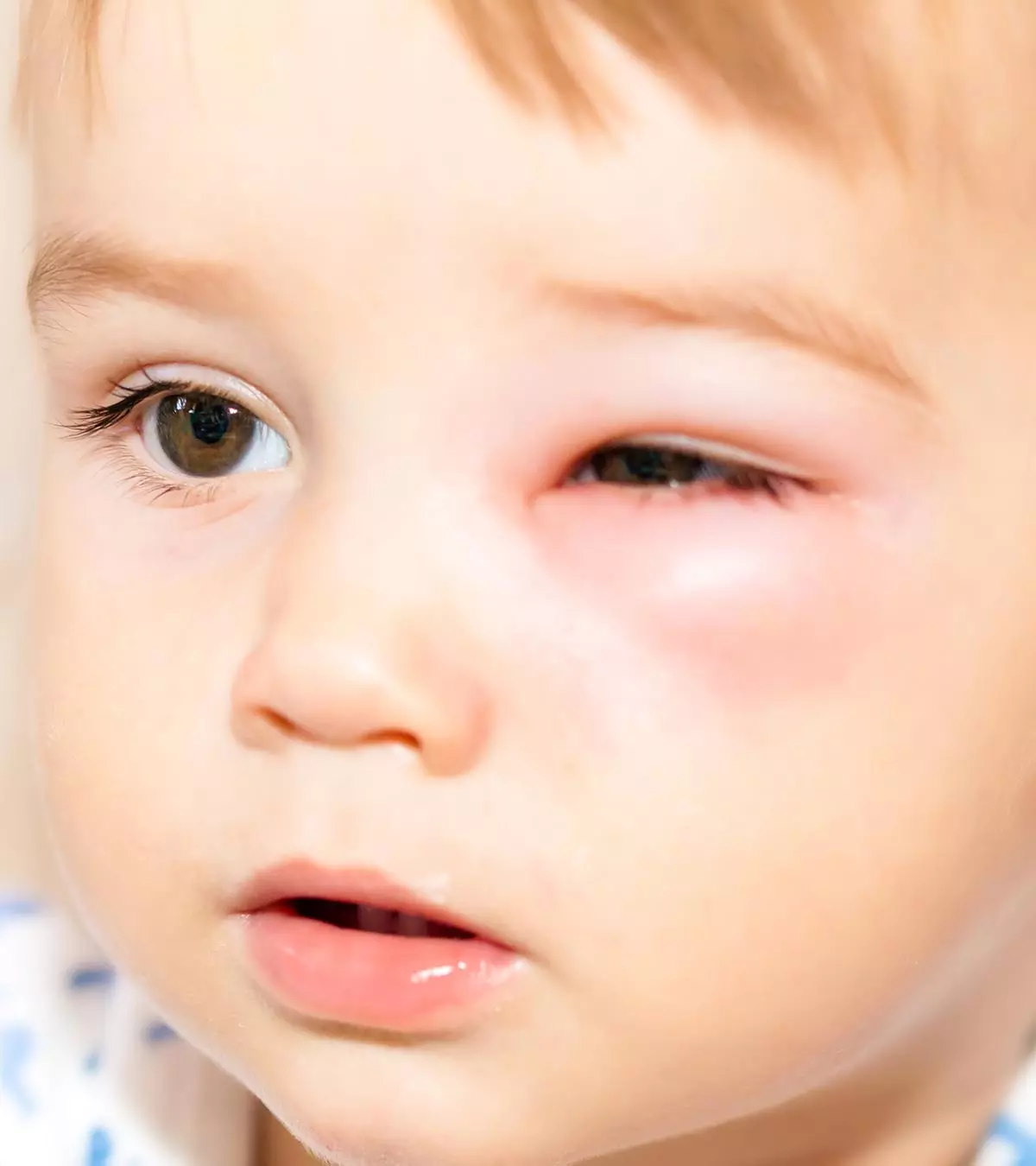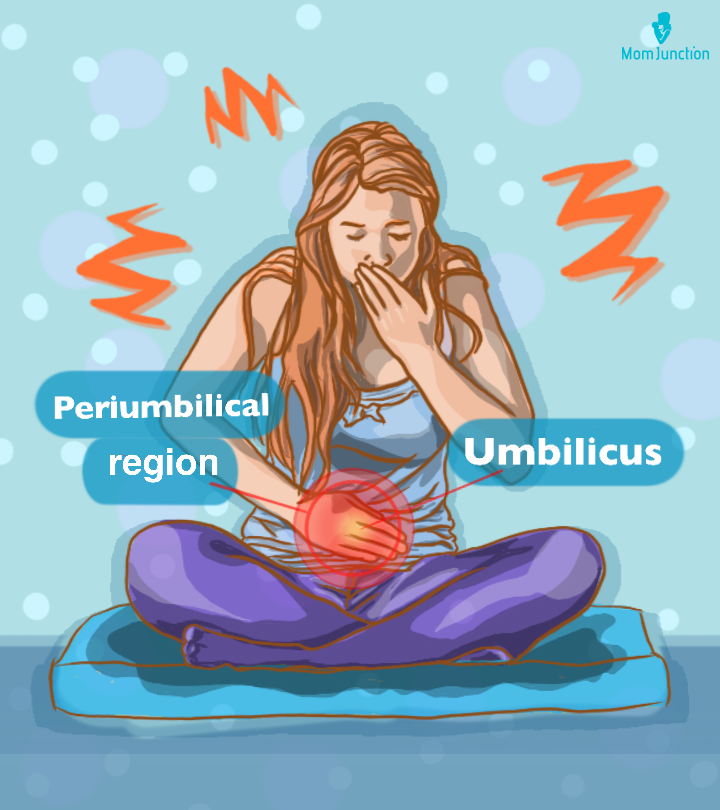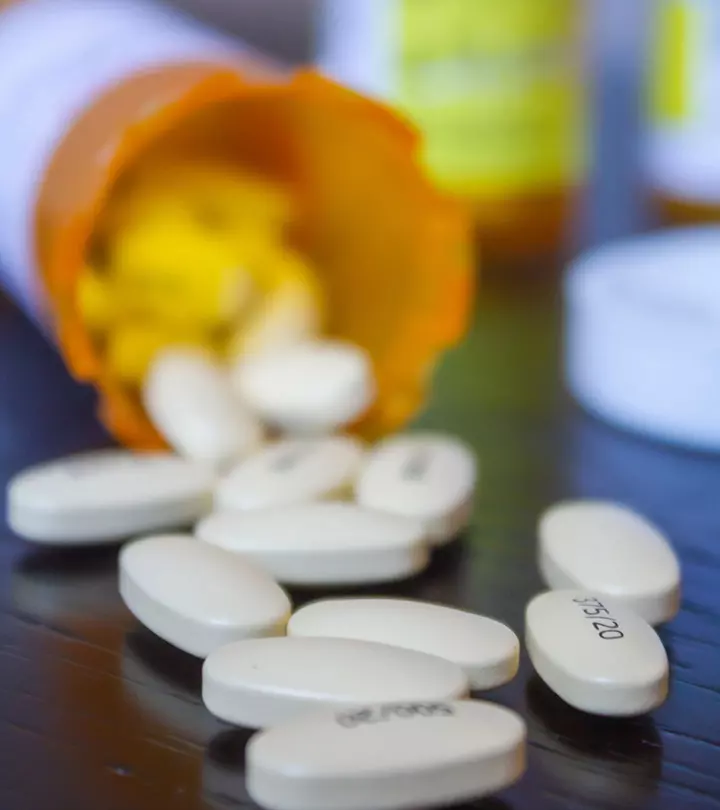
Image: iStock
The US Food and Drug Administration (FDA) allows Prozac for children only to manage major depressive disorders and OCD (1). However, in adults, this antidepressant is used to treat depression, bipolar disorderiA mental illness characterized by intense mood swings and cycles of extreme mania and depression , obsessive-compulsive disorder (OCD)iA mental health condition distinguished by recurring, unwanted thoughts and behaviors , bulimia nervosai An eating disorder characterized by binge eating followed by employing methods to lose the gained weight (an eating disorder), and panic attack disorders. The FDA recommends so because prolonged use of selective serotoniniA molecule secreted in the brain that transports messages from nerve cells and helps regulate mood, sleep, and appetite reuptake inhibitors (SSRIs) such as Prozac (a brand name for Fluoxetine) can have risks that require thorough evaluation before using them on the pediatric population. Read on to know about the safety, side effects, possible risks, and the precautions you need to take while using Prozac for children.
Key Pointers
- Prozac is used to treat major depressive disorders and prevent relapse in children.
- The possible side effects of Prozac include anxiety, diarrhea, and insomnia.
- Inform healthcare providers about your child’s Prozac use before undergoing other treatments.
Uses Of Prozac For Children

Data from several randomized controlled clinical trials indicate that the benefits of Fluoxetine for treating major depressive disorder (MDD) in children and adolescents outweigh its risks. Fluoxetine was reported to have notable effects superior to placebo (formulation without active ingredients, such as sugar pills). Therefore, it is primarily used in children for the following purposes.
- The acute phase treatment of MDD in child and adolescent outpatients with severe persistent depression (2).
- The prevention of relapse or extending time to relapse in pediatric MDD (3).
- Short-term or maintenance treatment of MDD or OCD in children aged eight years and older.
Scientific evidence suggests that fluoxetine may be the drug of choice for treating MDD and anxiety disorders. However, for use in anxiety disorders in children, approval is restricted to anxiety associated with OCD. Experts believe that the medication should be reserved for patients with moderate to severe depression. Maximum benefit can be derived if the medication is combined with cognitive behavioral therapy (CBT)iAn intervention that aims at changing negative thought patterns and behaviors to manage a mental-health condition with proper monitoring in children and adolescents (4) (5).
 Experts say
Experts sayProzac Dosage For Children

You should give Prozac to your child only when prescribed by a doctor. The medication is available as a tablet or capsule to be taken by mouth. The recommended dosage of Prozac for children varies by condition, as per the manufacturer’s guidelines, and is as follows for MDD and OCD (1):
- MDD: Initially 10mg to 20mg per day
- OCD: Initially 10mg per day
Your child’s psychiatrist may adjust the dose depending on your child’s age, body weight, and the severity of the condition being treated. Sustained maintenance therapy may be required where the dose may be gradually adjusted by your child’s doctor based on his/her response to the therapy.
Dr. Sarper Taskiran, a child and adolescent psychiatrist at the Child Mind Institute, states that antidepressants like Prozac should aid in at least 40% reduction in a child’s symptoms within one and a half months. If not, the healthcare provider may consider changing the medication (16).
 Do remember
Do rememberProzac Side Effects In Children
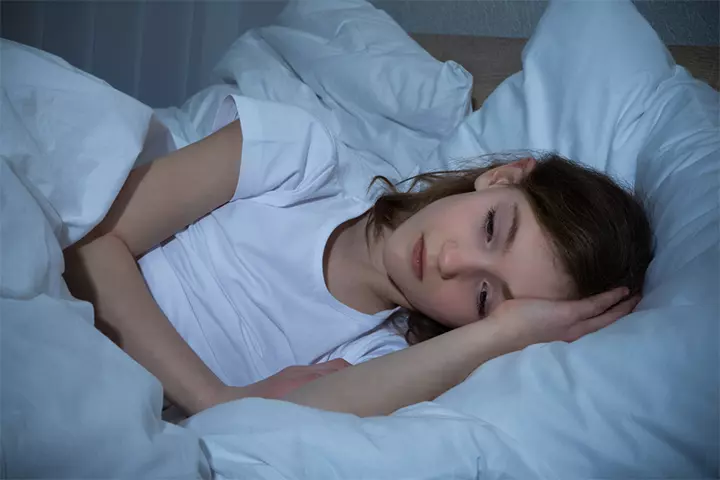
Prozac (Fluoxetine) acts by modulating the neurotransmitteriChemical messengers in the brain that send signals throughout the body to carry out its vital functions serotonin and may have side effects. Research suggests that side effects from antidepressants like Prozac are often severe in the early stages of treatment, making close monitoring crucial (18). Consult your child’s doctor if side effect symptoms are severe or do not resolve (1) (6). Below are the various potential side effects of Prozac in children.
- Nervousness
- Anxiety
- Sleep disturbances (including insomniaiA sleep disorder that makes it difficult for one to fall asleep, stay asleep, or get a sound sleep )
- Diarrhea
- Dry mouth
- Acid refluxiReflux (backward flow) of stomach contents to the food pipe causes burning and discomfort in the chest
- Fatigue
- Weight loss
- Loss of appetite
- Excess sweating
- Difficulty concentrating
- Confusion
Severe side effects that require immediate medical attention are:
- Allergic reactions such as rash, hives, shortness of breath, or swelling of the hands, feet, face, lips, and/or tongue
- SeizuresiSudden and abnormal surges of electrical activity in the brain characterized by jerking body movements and loss of consciousness
- Abnormal bleeding or bruising
 Be watchful
Be watchfulSerotonin syndrome is an adverse and potentially fatal side effect that occurs if Prozac is taken with other drugs that affect serotonin levels. Symptoms of serotonin syndrome may include (7):
- Agitation
- HallucinationiA phenomenon in which one may sense visuals, sounds, or smells that seem real but, in reality, are not or delirium
- Muscle twitchingiBrief, spontaneous muscle contractions and muscle incoordination
- Increased heartbeat rate (tachycardia)
- Fluctuations in blood pressure
- Nausea or vomiting
- Diarrhea
- Fever
- Coma
 Things to know
Things to knowPrecautions To Take When Using Prozac In Children
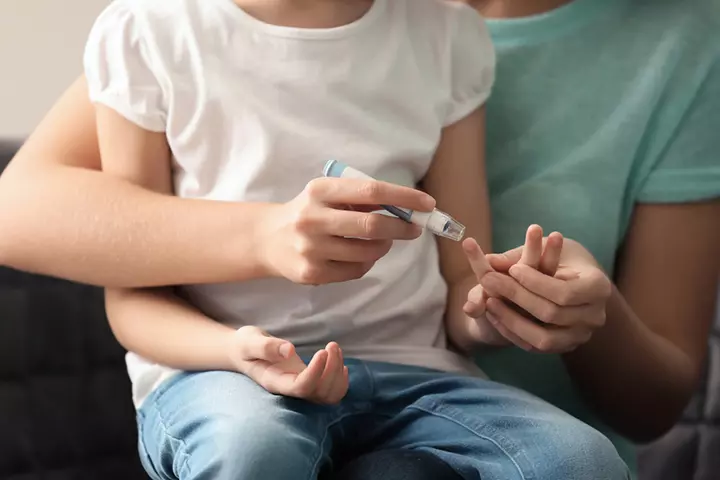
You must keep the following precautions in mind when administering Prozac to children (7).
- Make sure your child is not allergic to any of the constituents of the formulation. Fluoxetine tablets or capsules contain starch, gelatin, silicone, titanium dioxide, iron oxide, hypromellose, hypromellose acetate succinate, sodium lauryl sulfate, sucrose, sugar spheres, talc, triethyl citrate, and synthetic colors as inactive ingredients. Seek medical help if you see any signs of allergy.
- Inform your child’s doctor about any other prescription or over-the-counter (OTC) medications that your child is taking or has taken in the past month.
- Tell all of your child’s healthcare providers about his/her Prozac use prior to any other treatment.
- Children should avoid activities that require alertness, such as riding a bicycle or skateboarding, until their bodies have become accustomed to Prozac.
- Closely monitor your child’s blood sugar level if he/she has diabetes.
- The tablets or capsules need to be swallowed whole. Do not break or crush them.
- If your child misses a dose, do not give a double dose. Give the next dose as scheduled.
- Do not stop giving the drug suddenly without consulting a doctor.
- The drug may cause low sodium levels (hyponatremia) in some children. Seek medical help if your child shows symptoms of weakness, passing out, or seizures, as these are symptoms of low sodium levels.
- Consult the healthcare provider if your daughter has changes in their menstrual cycles when taking Prozac. Priapism (painful, persistent penile erection) may occur in adolescent boys.
- Fluoxetine may increase suicidal thoughts in some children and adolescents. Inform your child’s doctor of any such behavior in the past or a family history of suicides.
- Keep all medications out of children’s reach in child-proof containers. An accidental overdose of fluoxetine can be fatal.
 Point to consider
Point to considerFrequently Asked Questions
1. Does Prozac affect growth in children?
Some studies have shown that Prozac, a psychotropic medication, decreases the growth rate in children and teens by suppressing the growth hormones. However, more information on the effects of selective serotonin reuptake inhibitors (SSRIs)iA type of antidepressant that usually has fewer side effects is not available, and doctors may prescribe these medications when necessary in safe doses (8).
2. Can Prozac help ADHD symptoms in children?
Doctors have begun to prescribe Prozac for treating attention deficit hyperactivity disorder (ADHD)iA neurodevelopmental disorder affecting the child's ability to pay attention, control impulses, and manage energy levels in some children. This has been shown to change impulsive behavior, poor attention, and disturbed sleep in children with ADHD. More studies are needed to know the exact mechanisms and effectiveness of Prozac in improving ADHD symptoms (9).
3. Is Prozac better for anxiety or depression in children?
Prozac or fluoxetine is given to children with anxiety, depression, or ADHD. However, it is not prescribed for pediatric patients in some countries (10) (11).
4. Can Prozac cause aggression?
Animal studies have shown aggressive behaviors with repeated administration of low doses of fluoxetine or Prozac, which can impact mood. More studies are needed for reliable information (12).
5. How long does it take for Prozac to work for children?
Most children begin to feel improvement in their symptoms within a few weeks after taking Prozac. Sometimes, it may take as long as six weeks to work (13).
6. How is Prozac different from other antidepressants for children?
Prozac (fluoxetine) has a longer half-life than most selective serotonin reuptake inhibitors (SSRIs), meaning it stays in the body longer and causes fewer withdrawal symptoms. This makes it an ideal option for those who struggle with withdrawal or need a more flexible dosage plan (19).
Prozac is typically prescribed to treat major depressive disorders and OCD in children. Your child’s psychiatrist may recommend CBT along with Prozac for children with mental health conditions to ensure better outcomes. However, because of its ability to modulate serotonin, Prozac may cause severe side effects; thus, it is critical that you provide your child’s therapist with all of the necessary information to receive the appropriate Prozac dosage recommendation. Also, notify your child’s psychiatrist of any side effects and keep following up on the progress on a regular basis.
Infographic: How To Manage The Side Effects Of Prozac?
Prozac shows its action by altering neurotransmitter levels and may have certain side effects. These are especially prominent at the start of the therapy. Children may find it challenging to cope with some of these side effects. Read through the infographic below that discusses various ways to minimize them. Illustration: Momjunction Design Team
Illustration: Prozac For Kids: Uses Safety Side Effects And Precautions
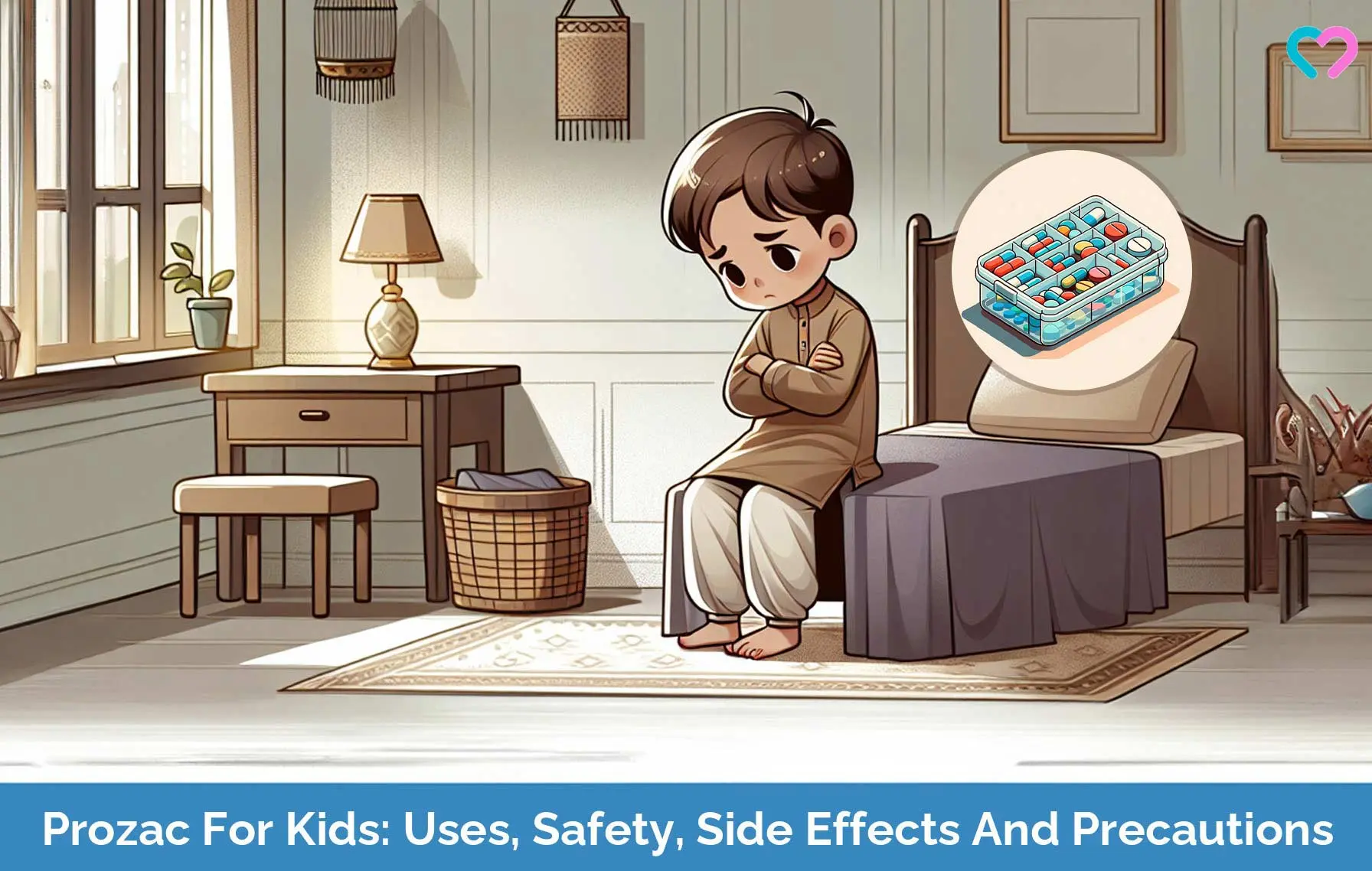
Image: Stable Diffusion/MomJunction Design Team
References
- Prozac.
https://www.accessdata.fda.gov/drugsatfda_docs/label/2011/018936s091lbl.pdf - G. J. Emslie et al.; (2007); A double-blind, randomized, placebo-controlled trial of fluoxetine in children and adolescents with depression.
https://pubmed.ncbi.nlm.nih.gov/9366660/ - Graham J Emslie et al.; (2008); Fluoxetine versus placebo in preventing relapse of major depression in children and adolescents.
https://pubmed.ncbi.nlm.nih.gov/18281410/ - Xinyu Zhou et al.; (2020); Comparative efficacy and acceptability of antidepressants, psychotherapies, and their combination for acute treatment of children and adolescents with depressive disorder: a systematic review and network meta-analysis.
https://www.thelancet.com/journals/lanpsy/article/PIIS2215-0366(20)30137-1/fulltext - E. Jane Garland et al.; (2016); Update on the Use of SSRIs and SNRIs with Children and Adolescents in Clinical Practice.
https://www.ncbi.nlm.nih.gov/pmc/articles/PMC4791100/ - Fluoxetine.
https://medlineplus.gov/druginfo/meds/a689006.html - Fluoxetine Pediatric Medication.
https://www.mskcc.org/cancer-care/patient-education/medications/pediatric/fluoxetine - Decreased Growth During Therapy With Selective Serotonin Reuptake Inhibitors.
https://jamanetwork.com/journals/jamapediatrics/fullarticle/203605 - Fluoxetine (Prozac) use in children: working towards a customised approach.
https://researchoutreach.org/articles/fluoxetine-prozac-use-in-children-working-towards-a-customised-approach/ - Tyler Yan and Ran D. Goldman; 2019; Time-to-effect of fluoxetine in children with depression.
https://www.ncbi.nlm.nih.gov/pmc/articles/PMC6693597/ - Multiple Meds and Kids: What to Know.
https://childmind.org/article/what-parents-should-know-about-having-kids-on-multiple-medications/ - Fluoxetine increases aggressive behavior, affects brain development among adolescent hamsters.
https://www.sciencedaily.com/releases/2012/10/121001141439.htm - Fluoxetine
https://www.aboutkidshealth.ca/fluoxetine - Serotonin syndrome
https://medlineplus.gov/ency/article/007272.htm - Suicidality in Children and Adolescents Being Treated With Antidepressant Medications.
https://www.fda.gov/drugs/postmarket-drug-safety-information-patients-and-providers/suicidality-children-and-adolescents-being-treated-antidepressant-medications - Medication for Kids With Depression.
https://childmind.org/article/medication-for-kids-with-depression/ - Label for Prozac (fluoxetine).
https://www.accessdata.fda.gov/drugsatfda_docs/label/2017/018936s108lbl.pdf - Jennifer B Dwye and Michael H Bloch; (2019); Antidepressants for Pediatric Patients.
https://pmc.ncbi.nlm.nih.gov/articles/PMC6738970/ - Patricia A Marken and J Stuart Munro; (2000); Selecting a Selective Serotonin Reuptake Inhibitor: Clinically Important Distinguishing Features.
https://pmc.ncbi.nlm.nih.gov/articles/PMC181142/
Community Experiences
Join the conversation and become a part of our nurturing community! Share your stories, experiences, and insights to connect with fellow parents.
Read full bio of Dr. Jessica Madden
Read full bio of Dr. Joyani Das
Read full bio of Dr. Ritika Shah
Read full bio of Vidya Tadapatri












